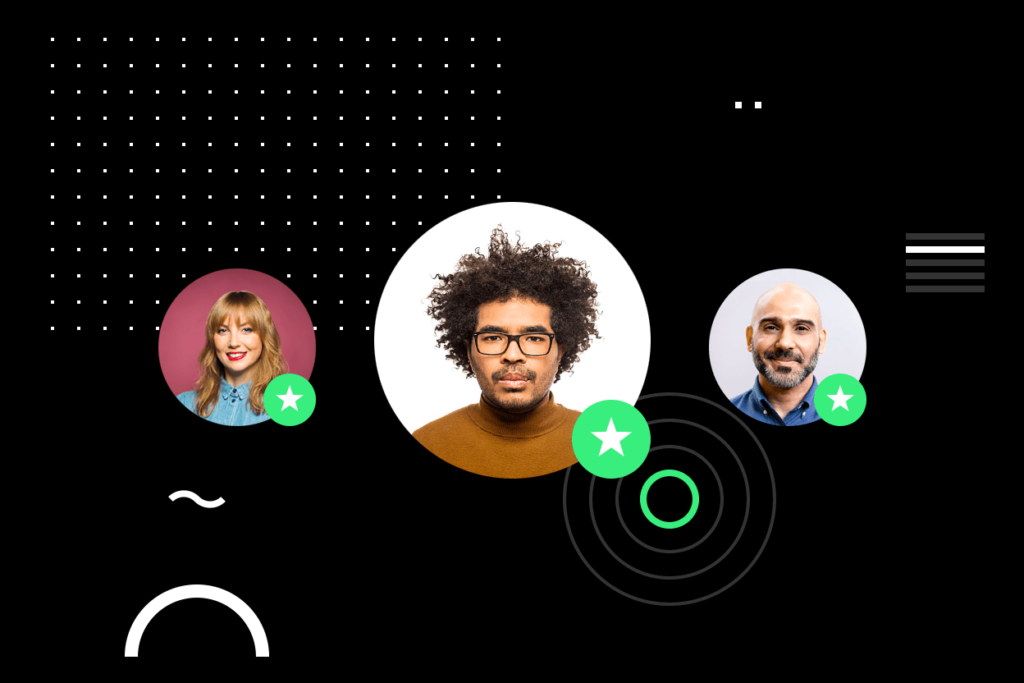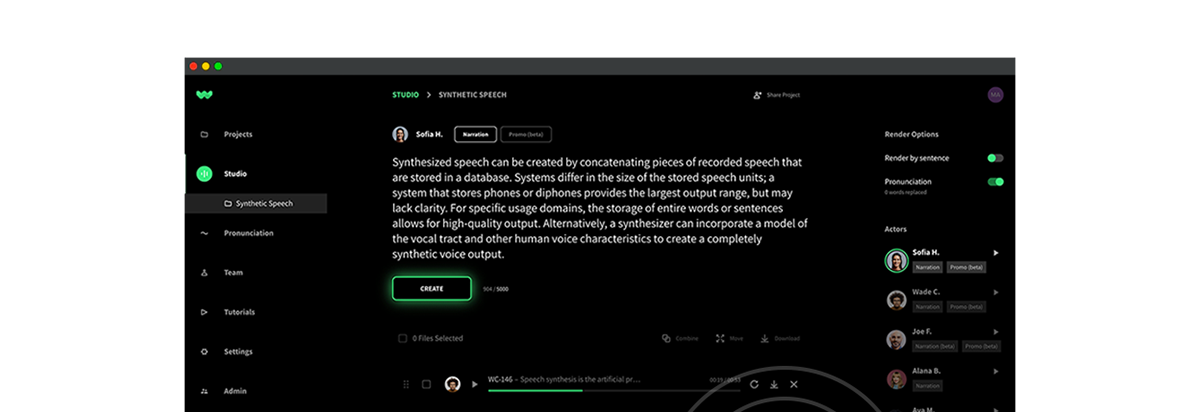Add voice to all things digital
Voice is the new interface. Create more engaging experiences with natural-sounding AI voices from WellSaid. Do your best work building your product while WellSaid supercharges it with the best AI voices.

Select a voice actor and your script to receive a mp3 stream rendered faster than real time.
Test prototypes using the API Sandbox. Scale all the way up to hundreds of millions of characters per month.
Connect WellSaid API to your internal tools and other services.



Using a text-to-speech API can provide you with unlimited possibilities for creating speech synthesis at scale for your products and services. But how exactly can it help enhance your business and what are some common use cases?
Let's look at a few of the benefits text-to-speech (TTS) API can offer for businesses:
If you decide to use text-to-speech API, Python and many other programming languages can be used to set it up. But before you make that choice, it's good to look at some of the use cases that you could potentially apply the technology to for your organization.
Now that we've looked at some of the most powerful business benefits a text-to-speech API can offer, let's also explore how it can have a positive impact on everyday life.

© WellSaid Labs, Inc. 2022
All rights reserved
Made with
in Seattle, WA